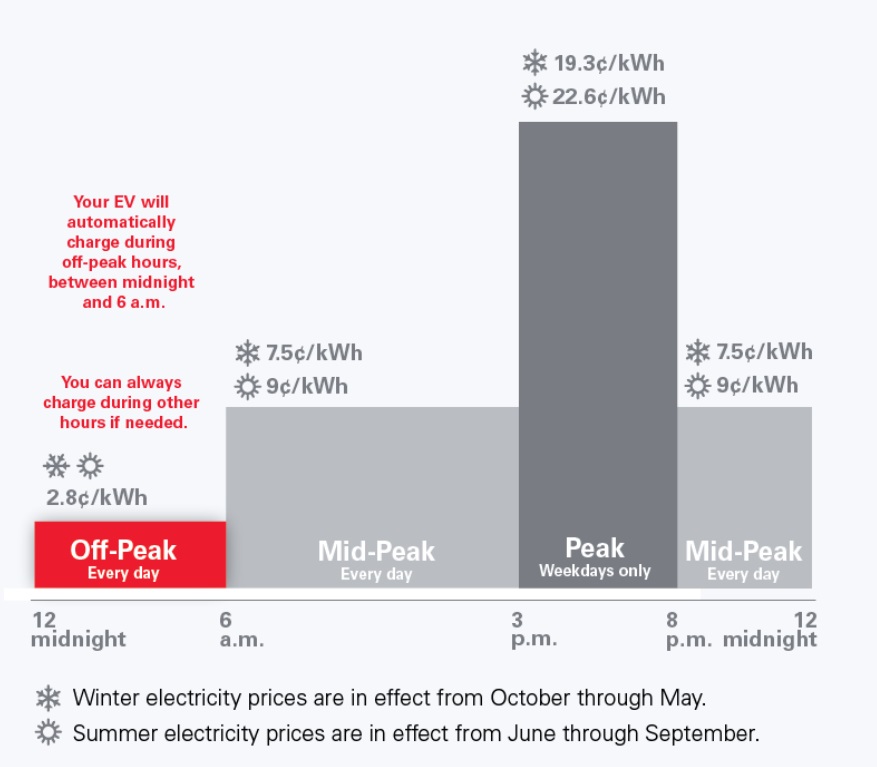Low enrollment in electric vehicle “smart charging” program means EVs will increase strain on the grid
A recent article by E&E News Energywire found that Xcel Energy, Minnesota’s largest electric company, has struggled to get electric vehicle (EV) owners to sign up to a charging program that ensures that vehicles are charged during overnight hours when electricity is cheapest and demand on the grid is low.
The article states that managed or “smart” charging is seen as a key to ensuring that all utility consumers — including non-EV owners — benefit from the transition away from gasoline engines. Off-peak charging is also necessary to ensure additional demand from EVs doesn’t strain the grid and increase emissions.
According to Public Utilities Commission Briefing Papers, Xcel Energy said that just 10 percent of 14,000 EVs in its service area were signed up for managed charging — programs that have utilities automatically control when charging occurs to take advantage of off-peak electricity pricing.
The graph below shows that the cost of EV charging in Xcel Energy’s managed charging program, in which EVs charge from midnight to 6 a.m., is only 2.8 cents per kilowatt-hour, which is almost five times lower than the average residential rate of 13.7 cents per kilowatt-hour, according to 2020 data from the U.S. Energy Information Administration.

EV advocates argue that electric vehicles will not increase the demand for new power plants because they can be charged during periods of low demand. However, if EVs are not signed up for managed charging programs, they will increase the strain on the grid during periods when the demand is highest, which will require more power plant capacity.
The Minnesota Department of Commerce agrees, stating, “If only 10 percent of a utility’s EV customers manage their charging, the potential benefits of electrifying transportation, including downward pressure on rates, will not materialize.”
If low enrollment in these “managed charging” programs persists, a rising number of EVs on the grid will increase the cost of electricity for everyone by necessitating the construction of new power plants.